 |
Autonomy measures can work in a range of fields – and offer a promising source for innovations and even institutional reforms.
|
97 |
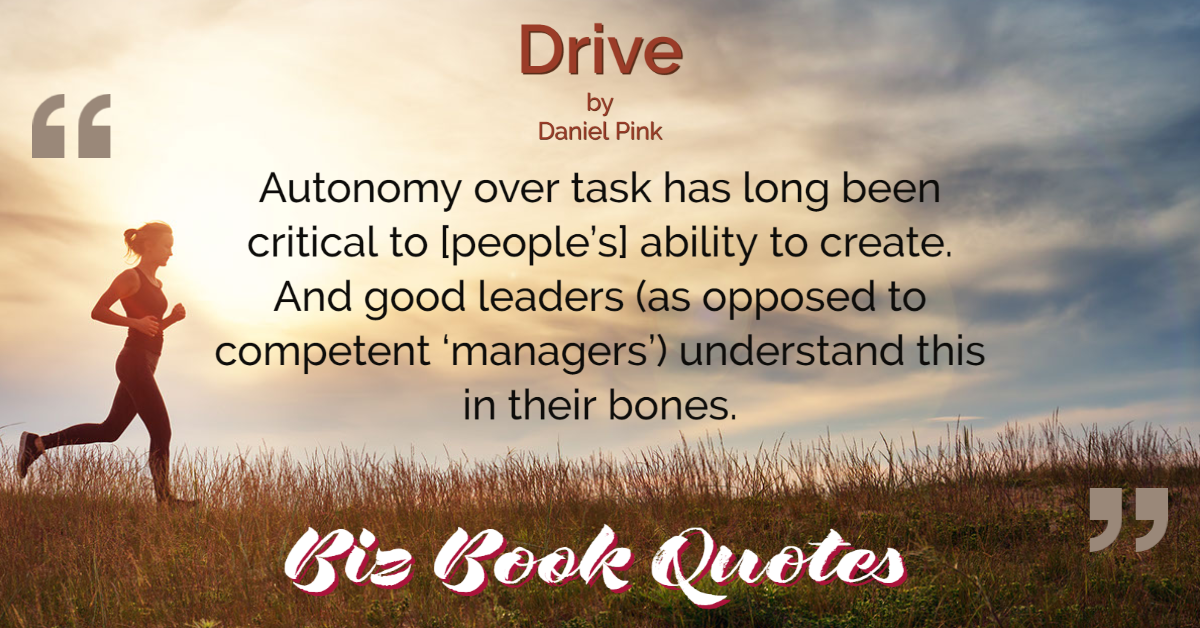 |
Autonomy over task has long been critical to [people’s] ability to create. And good leaders (as opposed to competent ‘managers’) understand this in their bones.
|
98 |
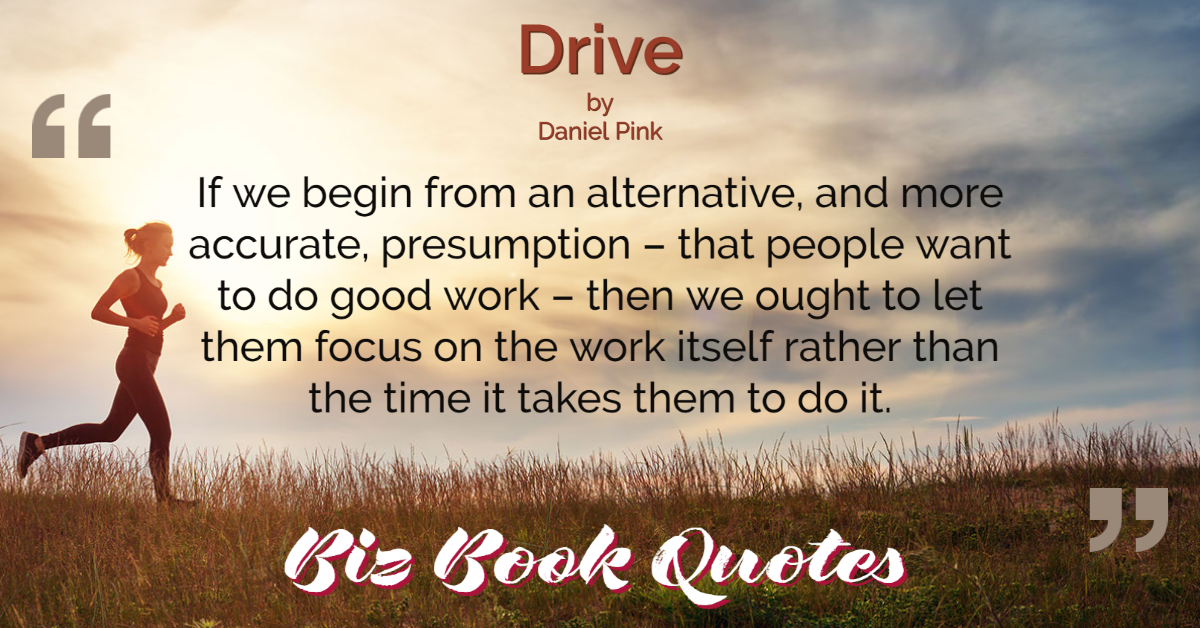 |
If we begin from an alternative, and more accurate, presumption – that people want to do good work – then we ought to let them focus on the work itself rather than the time it takes them to do it.
|
100 |
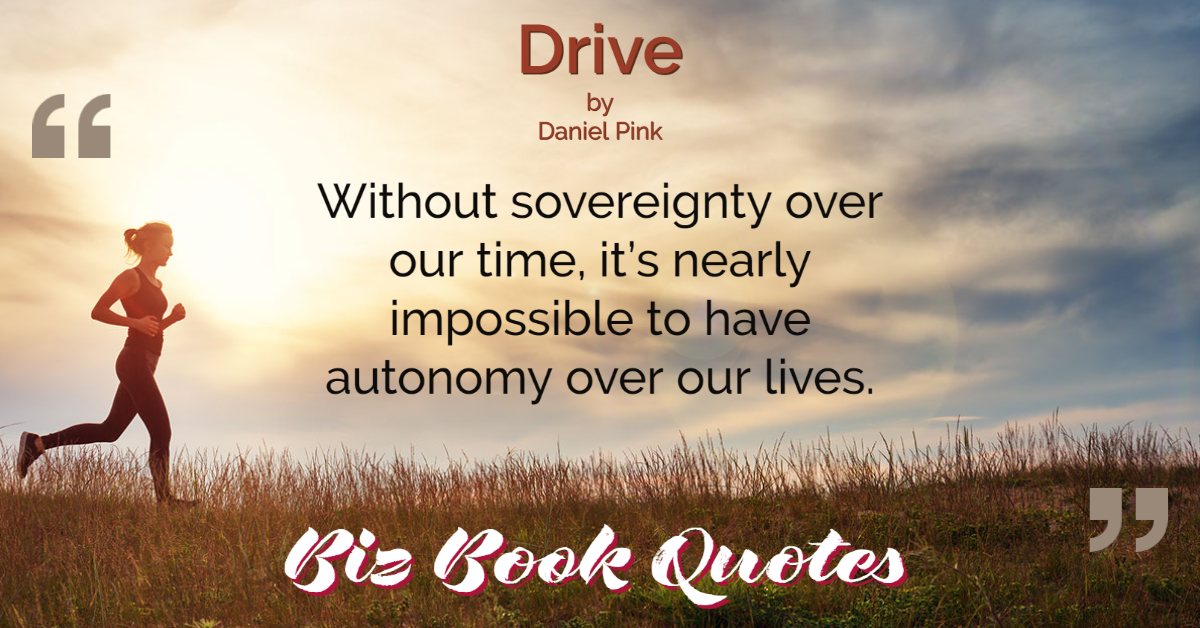 |
Without sovereignty over our time, it’s nearly impossible to have autonomy over our lives.
|
101 |
 |
Autonomy, it turns out, can be contagious.
|
106 |
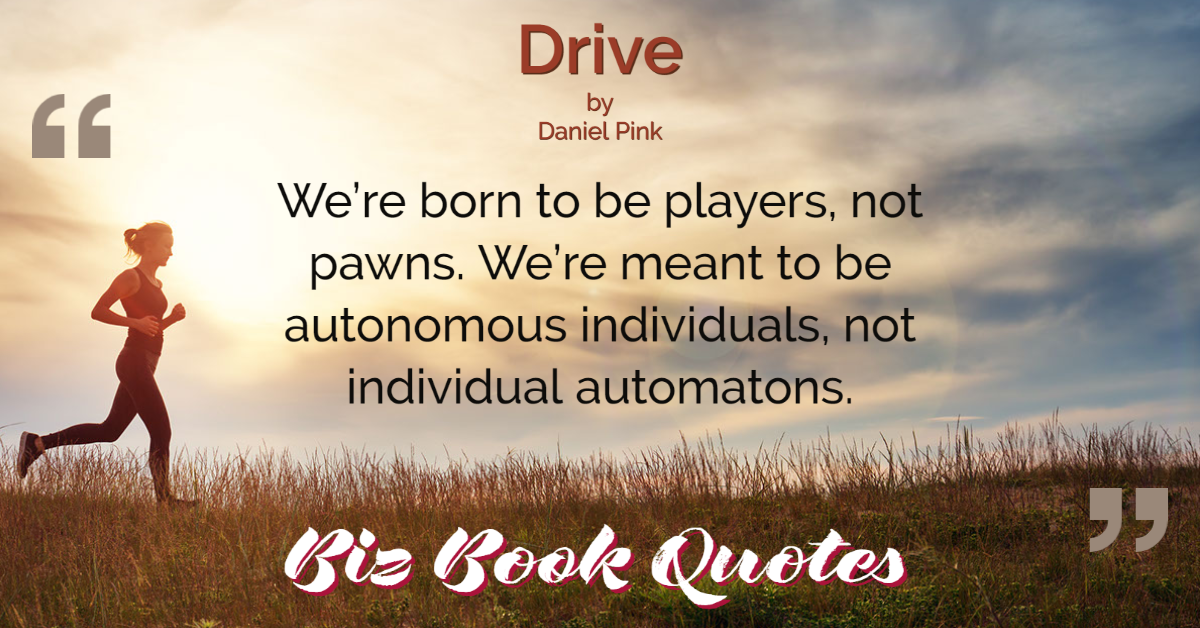 |
We’re born to be players, not pawns. We’re meant to be autonomous individuals, not individual automatons.
|
107 |
 |
Control leads to compliance; autonomy leads to engagement.
|
110 |
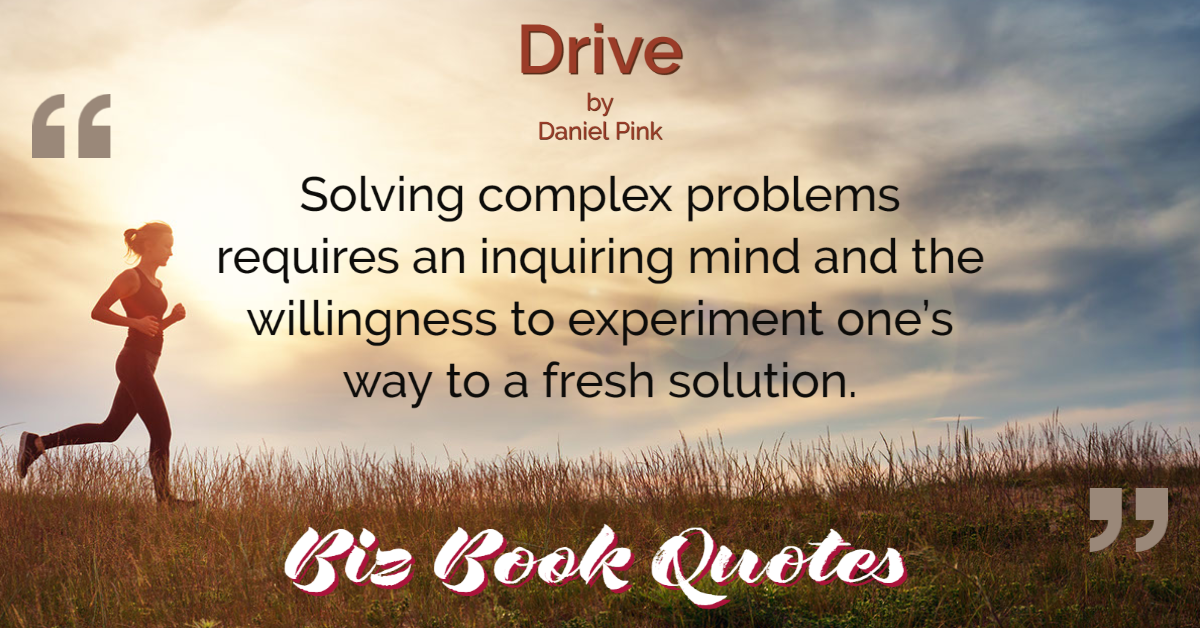 |
Solving complex problems requires an inquiring mind and the willingness to experiment one’s way to a fresh solution.
|
111 |
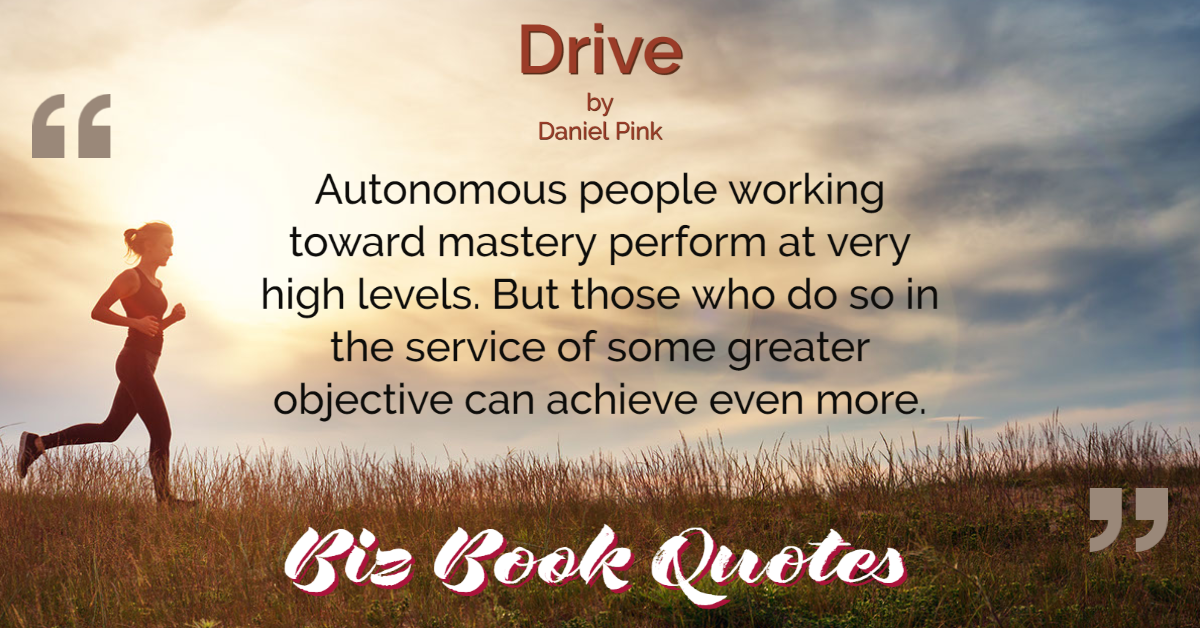 |
Autonomous people working toward mastery perform at very high levels. But those who do so in the service of some greater objective can achieve even more.
|
133 |
 |
The science shows that the secret to high performance isn’t our biological drive or our reward-and-punishment drive, but… our deep-seated desire to direct our own lives, to extend and expand our abilities, and to live a life of purpose.
|
145 |